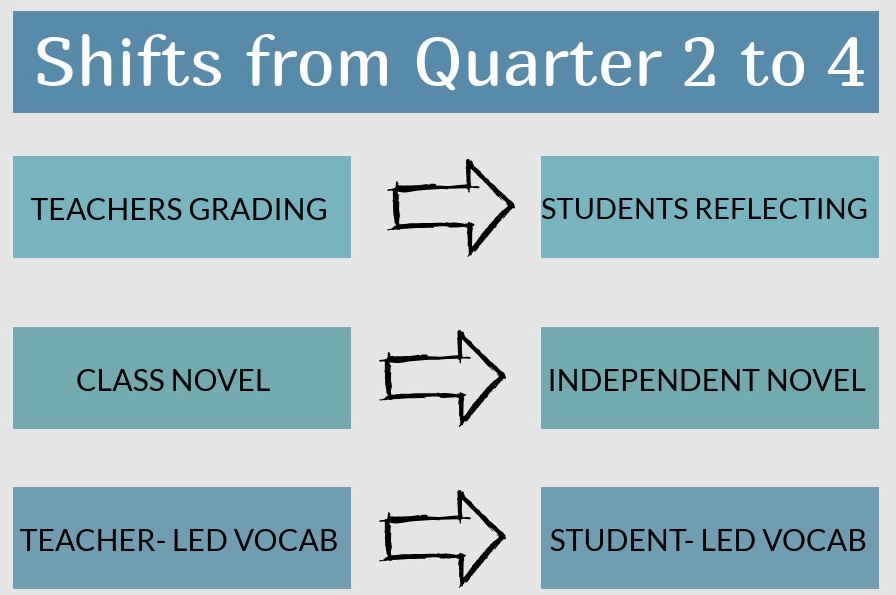New Round of Changes to English 9, 10 Curricula
After a study done on the middle school curriculum prompted big changes, MCPS is making changes to the high school English curriculum as well.
April 16, 2019
After Johns Hopkins University conducted an external audit of the K-8 English Language Arts (ELA) and math curricula in MCPS schools, adjustments are now also being made to improve the existing high school curriculum in upcoming school years.
Last year, the Board of Education (BOE) commissioned the outside inspection of the English and mathematics curricula within elementary and middle schools, which provided findings and recommendations for K-8. However, since the middle and high school English curricula are similarly structured, there were some recommendations from the inspection that officials are considering applying to high schools as well.
“On March 22, 2018, the Board of Education received a report of the findings for the curriculum review conducted, as mandated by the curriculum policy to occur every five years. The review focused on the written, taught and learned curriculum for grades Kindergarten through Grade 8, in English Language Arts (ELA) and mathematics,” according to a 2019 MCPS bulletin article.
The vision for the English ninth and tenth grade curriculum currently includes critical and creative thinking opportunities for inductive reasoning, flexible opportunities for choice to provide access to challenge, opportunities for metacognition and self-reflection, complex and diverse texts, flexible approaches to writing to explore thinking, frequent opportunities for feedback, language acquisition and building sentence skills within the context of reading and writing, according to a 2019 MCPS presentation given out to all English 9 and English 10 teachers.
“That [new curriculum additions] might mean ensuring closer alignment to grade-level standards, making improvements in the writing process, or identifying more ‘anchor texts’ that create more consistent experiences for students across MCPS,” Director of Secondary and Districtwide Programs Scott Murphy said.
The English 10 curriculum is slated to change next school year. Instead of teachers grading student reading, the BOE would like to see an emphasis on students’ reflections of their reading. They also hope to incorporate small reading groups more often, rather than the whole class reading the novel together and have student-led vocabulary learning instead of teacher-led vocabulary learning, according to the 2019 MCPS presentation.
In quarters two and four, students will be able to select from a range of texts, examine a theme rather than a genre, read as many texts as possible, be given time to read in class and craft common writing tasks (CWT) based on shorter texts. These additions are similar to the new eleventh and twelfth grade curricula that have been rolled out over the past four years.
The additions will begin to pose new questions unto the students. These questions include asking what conversations about literary merit look like, along with how to provide structure to turn students into readers.
Pursuant with a 2019 MCPS presentation, the updates to the curriculum hope to turn non-readers into readers and to further encourage the students who already love reading. MCPS plans to achieve this through student choice reading that incorporates students’ interests.
However, these additions to the curriculum are not final. The Department of Secondary and Districtwide Programs is still discussing the details and no final decisions have been made to change the curriculum yet.
The Board of Education recently adopted new curriculum materials in middle school English from Great Minds LLC, McGraw-Hill Education Inc. and LearnZillion Inc. Feedback will be gathered from middle schools over the next year to determine what new curriculum might be considered for high school, including the possibility of an external curriculum, in upcoming years, Murphy said. However, these would be only updates and additions to the current curriculum, not a completely new curriculum.
“It [this possible change] is a step towards explicitly articulating ideas that many teachers had already adopted,” 10th grade English teacher David Akatu said. “It makes sense to continue to provide and emphasize student choice because the ultimate goal is to develop young adults that think critically and independently.”





